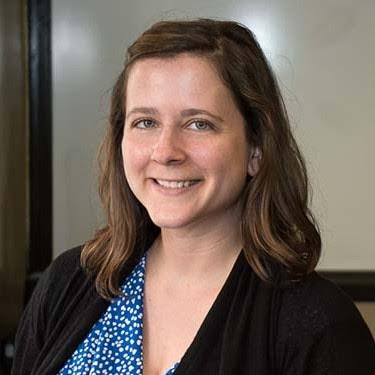Advice for Foundations, from a Fundraiser Turned Grantmaker
Moving directly from a full-time job raising money to a full-time job as a grantmaker has led me to a bit of an identity crisis at times. I have found myself griping about foundations’ actions, while simultaneously realizing I am now one of them (and probably at times have been part of the problem). I also have much more appreciation for the amazing program officers I worked with as a fundraiser, who had easy applications, treated me with respect, and always responded to my emails (among other things).
Perhaps because of my dual experience, I’ve thought a lot about what I’ve tried to carry forward in my current role. Here’s are my top seven takeaways that I hope prove helpful for other philanthropic practitioners, especially those that have never been on the “asking” side.
-
It’s VERY stressful to raise money. I’m sure all development directors and folks in charge of budgets wake up in the middle of the night in a cold sweat about meeting budget goals or making payroll. Because of this, it’s so important to not lead grantees on and be as honest as possible about funding. I wish funders had been more brutally honest with me. If you know a proposal is unlikely to be approved, try to kindly prepare an organization for this. Similarly, if your board was on the fence, but approved a grant, try to prepare them that funding may not continue so they can best plan for their sustainability.
-
Most of the time, nonprofits have no idea why something wasn’t funded. And if they knew they would probably be better for it. If specific concerns came up during the evaluation process, please, please share it with them. I would have been SO grateful to have concrete ideas about ways I could improve proposals or site visits. As donors, we have this incredible birds-eye view of the field, and our insights can and should be shared much more than we do!
-
Nonprofits budget based on what was received the previous year. This seems obvious, but what this means in practice is that a nonprofit organization is probably planning on a grant from your foundation at a similar size every year on a similar timeline unless you’ve told them otherwise. If you know that’s unlikely, it will save so much heartache to tell them that funding really isn’t likely to continue. This is particularly true if your grant contributed to a significant portion of their budget. If you have been a long-time donor, especially of a major gift, and something changes, it’s a much better practice to taper off funding, rather than go from $100,000 to $0.
-
It’s a fundraisers job to ask for money and generally never give up. If you come from the business world it’s just like sales. I think having some of my board members understand that helps them have more compassion when working with someone who is particularly persistent.
-
Nonprofits will jump through any hoop you ask them, so be kind with this power. You might think you’re asking for a simple piece of data that should be easy for grantees to turn around in 24 hours. But the reality is, they might not have that data, or they might have a grant due at that day and sending you answers to three “quick” questions means they’re at the office later than planned.
-
There’s a never-ending list of deadlines for nonprofits, which is why they’re always turning grants in the day they are due. Trust me. I very type-A, and I never missed a deadline, but I also could NEVER find a way to get ahead of deadlines by more than 24 hours. A new deadline always pops up, and most development departments are so understaffed that it’s near impossible to work in advance. Be understanding of the time and capacity needs of your grantees, exercising flexibility where you can.
-
Making something due January 1st is really a terrible idea. See above for why, but in case it’s not clear, this means you’re asking someone (or multiple people!) to work through the last week of the year which is commonly reserved for family and holidays. Even if they figured out a way to get ahead of things during the busiest time of the year, the increased vacation rates mean someone is probably out of the office making it more difficult to gather what is needed in time. I always ended December working on some grant and hating that foundation with a passion.
I hope my learnings are helpful. I know I’m not perfect and I’ve made tons of mistakes in my two years since moving to the foundation world, but I do try to remember as often as I can that foundations are truly only as good as their grantee partners, thus being as supportive as I can to nonprofits doing the work is my job.

